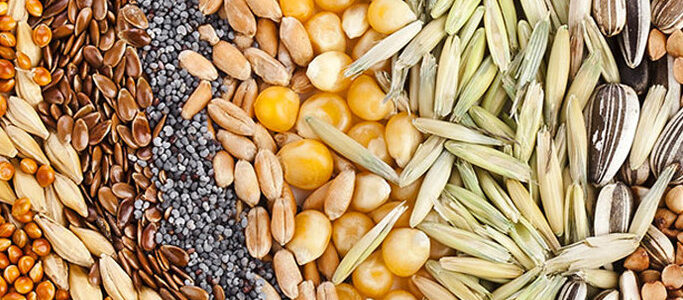
Kernel, one of the largest agricultural holdings in Ukraine, has almost completed harvesting winter wheat on an area of 60 thousand hectares and winter rapeseed on 10 thousand hectares, noting an increase in yields and forecasting an increase in production of all crops in the 2023 season, the company said in a statement on the Warsaw Stock Exchange.
According to the report, in the 2023 season, the agroholding expanded the area under winter wheat by 1.7 times, and winter rapeseed by twice compared to last year. Favorable weather conditions resulted in higher yields of these crops: winter wheat yields reached 6.6 t/ha, which is significantly higher than a year earlier, when it was 4.6 t/ha; winter rapeseed yields were 3.3 t/ha, compared to 2.5 t/ha a year earlier.
“Kernel has also allocated significant areas for spring crops, including 120 thou hectares of sunflower, 84 thou hectares of corn and 65 thou hectares of soybeans.
“Risks for the group’s spring crops (corn, sunflower and soybeans) are currently limited, so the group expects to get yields close to historical averages,” the agricultural holding said.
“Kernel assesses the harvest prospects in Ukraine as “generally favorable” and forecasts an increase in grain and oilseed production compared to the previous year.
Speaking about the prospects for sales of the grown products in FY2024, the baseline scenario of the agricultural holding envisages exports only through the Danube River ports and inland routes due to the susceptibility of agricultural infrastructure to destruction caused by Russia’s regular missile attacks.
“Kernel has already secured some capacity to export sunflower oil and meal, but has not yet secured a stable and cost-effective grain transshipment option. The agroholding announced the need for additional investments to increase grain export capacity and reduce logistics costs.
“At the beginning of the season, the profit forecast for FY2024 envisages a significant decrease in EBITDA due to the undermined productivity of the agriculture, infrastructure and trade segments, which is caused by relatively weak global grain prices and expensive export logistics,” the agricultural holding explained.
At the same time, Kernel expects the oilseeds processing segment to be the main source of profit for the group in fiscal 2024.
The agroholding reported that it does not have access to credit limits from banks and relies on accumulated cash. At the same time, it continues negotiations with various financial institutions to obtain CapEx loans.
Uncertainty over VAT refunds in the future and the possible risk of hryvnia devaluation also increase the agroholding’s exposure to foreign exchange losses.
“Any estimates of volumes and margins are very sensitive to the current operational situation in Ukraine due to the constant disruptions caused by the war. The holding’s work is aimed at reducing further risks of losses caused by possible future Russian attacks,” Kernel summarized.
Before the war, Kernel was the world’s leading producer of sunflower oil (about 7% of global production) and its exports (about 12%). The company is one of the largest producers and sellers of bottled oil in Ukraine. In addition, the agricultural holding is engaged in the cultivation and sale of agricultural products.
The largest co-owner of Kernel through Namsen Ltd. is Ukrainian businessman Andriy Verevsky, who this year increased his stake from 41.3% to 74.05% as part of the buyout and delisting of the company from the Warsaw Stock Exchange.
Kernel’s net profit for the first nine months of FY2023 (July 2022 – March 2023) increased by 36% to $437 million, while revenue fell by 45% to $2.715 billion.